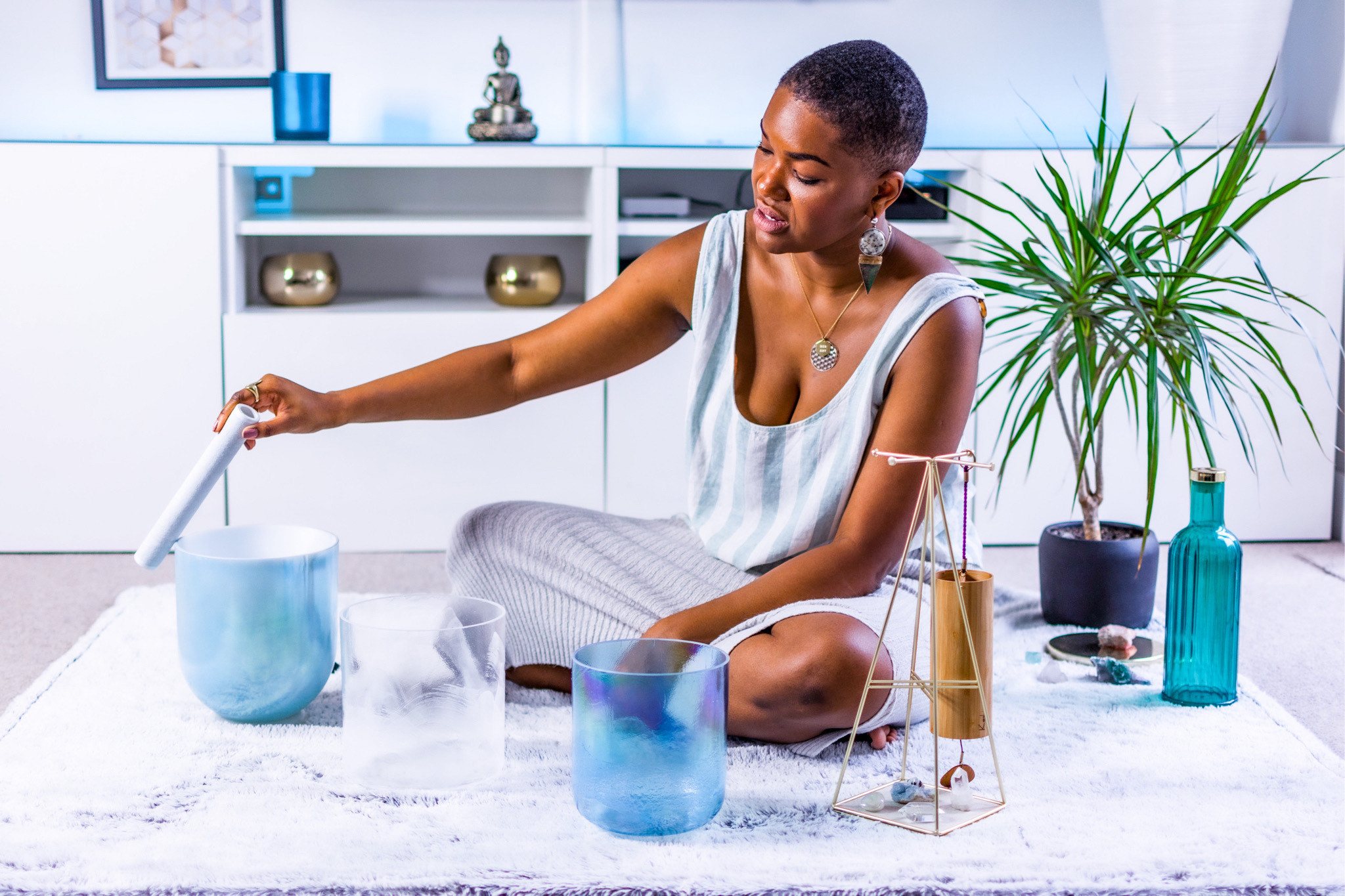
Jazreena Harlow is a transformational life coach with a focus on self-awareness, self-acceptance and self-mastery. She is also a crystal sonic therapist (aka sound healer) and founder of The Sistaship – a membership community that helps women to step out of overwhelm, guiding them through the introspective journey of finding themselves and getting into alignment with their soul’s purpose.
She is fiercely committed to assisting women to have deeper connections with their hearts and intuition to reclaim their inner wisdom and sovereignty.
Wanderlust: Since the June events, have you noticed the actual change wellness companies, platforms and businesses have made towards becoming inclusive and diverse? We all know that actions speak louder than words.
Jazreena: There has been a shift in inclusivity for sure. Whether it’s genuine or not is another conversation but I have seen far more diverse feeds and increased representation in advertising and I’m all here for it.
Wanderlust: Would you say that the white-centrism in the wellness industry has affected the path of healing from trauma for Black people? To put in other words, Black People are less likely to find a solution for themselves due to underrepresentation?
Jazreena: I would agree that it is much harder for Black people to find the right therapy, yes. There has been a lack of understanding in all aspects of how racial disparity in healthcare affects the lives of black people. A lot of our trauma stems from the effects of systemic racism so you can see why it can be very difficult, almost impossible sometimes to access therapy in diasporas that aren’t typically aware of or accustomed to looking out for the wellbeing of black people. You only have to look at medical statistics in how this fails people of colour. Black women are more likely to suffer from mental health issues and more likely to die during childbirth.
Wanderlust: Sound Therapy is an extremely white-washed territory with a certain stereotype of how a sound healer should look like. What are the key challenges you’ve faced as you’ve been establishing yourself in this space?
Jazreena: I think with most things my personal approach is to always find a seat at the table. I’m used to being in white-centric spaces, I grew up being the only black girl in my year at primary school. I was raised in an area that was predominantly white so I have the expectation in most spaces that I may be the only black person or black woman in the room- even throughout my career.
Key challenges are just being visible first of all and then being seen as credible amongst others. I love what I do so and am good at what I do so I try not to let this create a barrier for me.
Wanderlust: On your Instagram, you addressed an issue of focusing on ‘higher vibrations’ as opposed to ignoring groundwork. Is this one of the problems with the holistic and spiritual world, as one can rely on sharing the “words of wisdom” and tick the box that she or he has done their work without actually driving the change?
Jazreena: Precisely, yes. I think it’s an easier pill for people to swallow. It takes the onus off people doing the real inner work. They can use the ‘illusion’ argument to not address their own unconscious biases. I’ve seen many comments from white people who perceive conversations about race as diversive and part of a distraction agenda. I have found reading these types of comments hurtful, very dismissive and disrespectful.
Wanderlust: What are the key resources you’d point people to educate themselves? Books, websites, podcasts, films.
Jazreena: As I’m from the UK, my suggestions are UK centric.
- Books: Why I’m no longer talking to white people about Race by Reni Eddo-Lodge, Natives by Akala
- Podcasts: Conversations with Nova Reid
- Website: Novareid.com – Courageous Courage: antiracism and white privilege course
- Instagram: beautiful poetry written by @vean_ima
